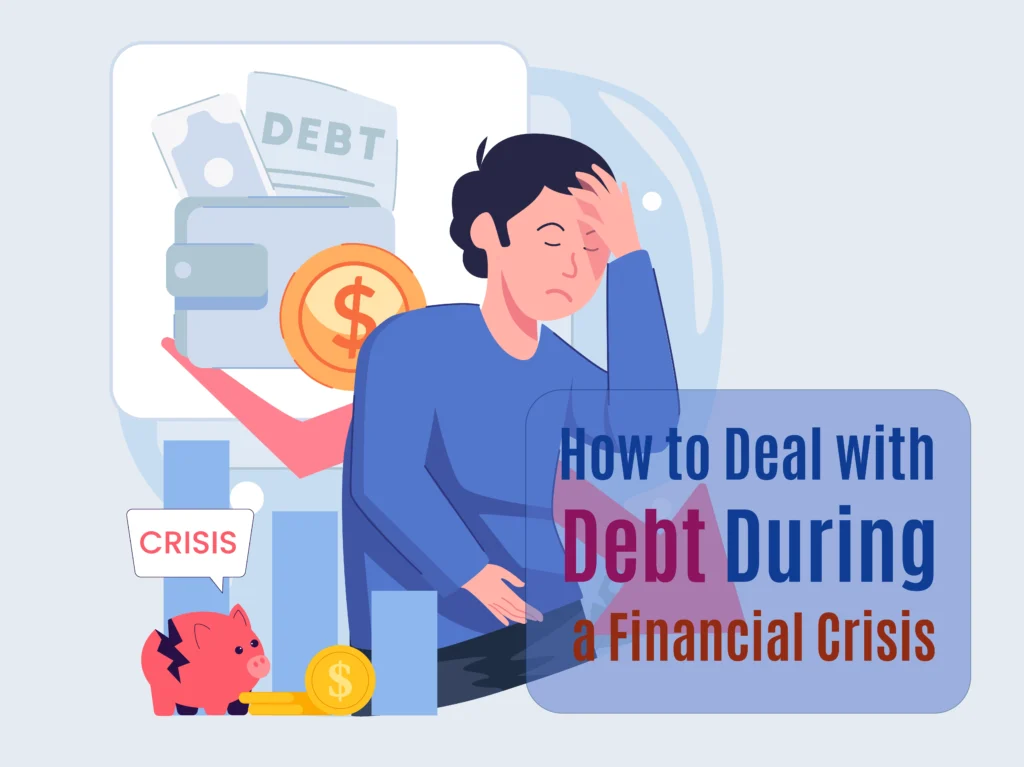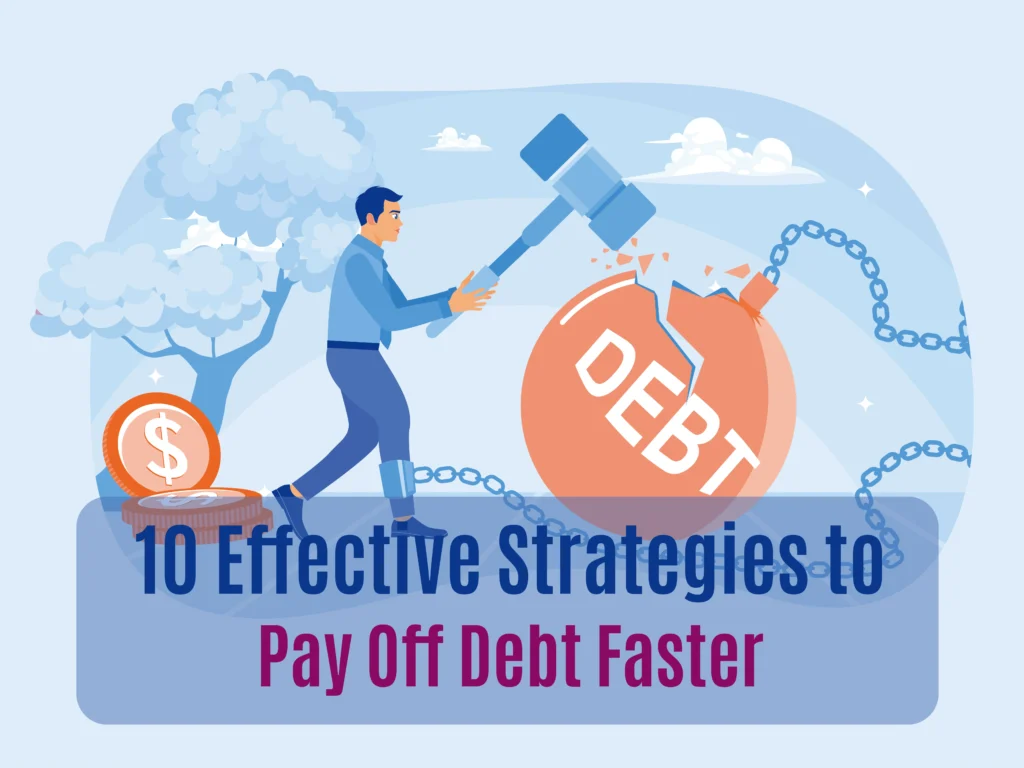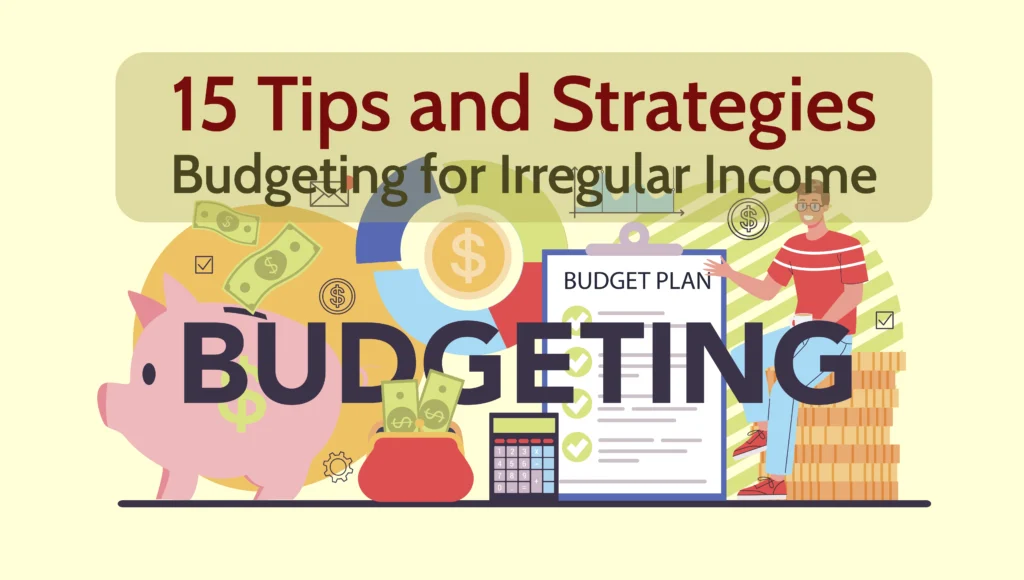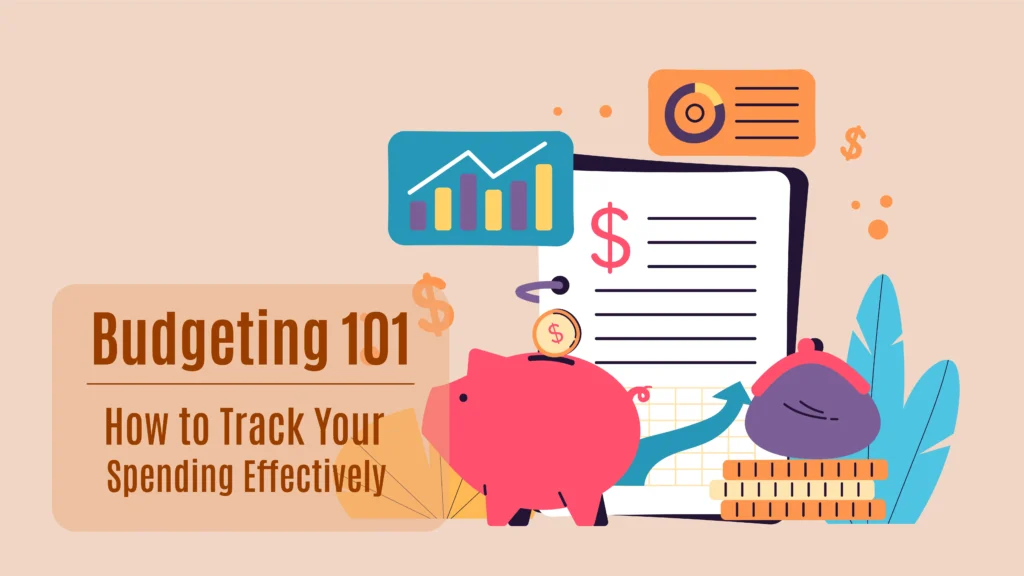How to Stay on Budget Easily: Avoid Deprivation with These Proven Tips
Sticking to a budget can often feel like a balancing act between financial discipline and enjoying life’s little luxuries. If you’re struggling to stay on budget without feeling deprived, you’re not alone. Many people associate budgeting with cutting back on fun, but it doesn’t have to be that way! By implementing a few smart strategies, you can easily stay on budget while still indulging in the things that matter most to you. In this post, we’ll share proven tips that will help you manage your finances effectively without sacrificing your happiness. Whether you’re saving for a big goal or simply trying to live more frugally, these easy-to-follow tips will show you how to stay on budget while still enjoying life’s pleasures. Say goodbye to the guilt of overspending and hello to a more balanced financial life! Ready to get started? Let’s dive into how you can make budgeting work for you, stress-free.

1. Shift Your Mindset About Budgeting
The Power of Perception
Your mindset plays a crucial role in how you approach your finances. When you think of budgeting as a chore or something that takes away from your quality of life, it’s easy to feel frustrated and deprived. This perception can set you up for failure before you even begin. On the other hand, if you view budgeting as a tool that enables you to take control of your finances, build wealth, and fund your future goals, you’ll have a much more positive experience.
The key is to see budgeting as a form of empowerment rather than limitation. It’s not about what you can’t do; it’s about making the most of your financial resources so that you can achieve the things that matter most to you. Whether it’s saving for a dream vacation, buying a home, or building a nest egg for retirement, budgeting helps you create a roadmap for success.
Scarcity vs. Abundance Mindset
Many people who struggle with budgeting operate from a scarcity mindset, which focuses on what they can’t have or what they need to give up. This mindset breeds feelings of deprivation, making it difficult to stick to a budget in the long term. To combat this, you need to shift to an abundance mindset. Instead of fixating on what you’re giving up, focus on what you’re gaining—both in the short term and the long term.
For example, rather than thinking, “I can’t afford to go out to dinner with friends,” reframe it as, “I’m saving for a weekend getaway that I’ve been wanting for months.” By focusing on the positive outcomes of budgeting, you’re less likely to feel deprived and more likely to stick with your plan.
Reframing the Narrative
One powerful technique to help avoid feelings of deprivation is to reframe your budget in a more positive light. Budgeting should be seen as a conscious decision you make to improve your financial situation, not a punishment. Start by identifying what you “get to do” because of your budget. You get to save for future experiences, you get to have peace of mind knowing your bills are paid, and you get to make progress toward your financial goals. This reframing transforms budgeting from a negative experience to a positive, empowering one.
2. Create a Realistic and Flexible Budget
Setting Attainable Goals
One of the biggest mistakes people make when starting a budget is being overly ambitious or unrealistic. They might cut out all discretionary spending, telling themselves they’ll never eat out, go to a movie, or buy new clothes again. While this may seem like a fast track to financial success, it’s not sustainable. Budgets that are too strict can lead to feelings of frustration and deprivation, making it difficult to stay on track.
Instead, set attainable and realistic goals. If you know you love dining out, don’t eliminate that category entirely. Instead, reduce it to a level that fits within your budget while still allowing for the occasional meal out. The goal is to create a plan that you can stick with in the long term, not one that feels like a temporary crash diet.
Accounting for the Fun Stuff
A well-rounded budget should include room for the things that bring you joy. Whether it’s going out for coffee with friends, attending concerts, or buying books, budgeting for fun is crucial to maintaining balance. These “fun” categories aren’t wasteful—they’re essential for keeping your mental and emotional well-being in check, which, in turn, helps you stick to your budget in the long run.
When you allocate funds for entertainment and hobbies, you don’t have to feel guilty about spending money on them. It’s already part of your plan! This approach also reduces the temptation to splurge on impulse purchases, as you’ll have already planned for small indulgences along the way.
Leave Room for Flexibility
Flexibility is key to a successful and sustainable budget. A rigid budget that doesn’t account for life’s unexpected moments can make you feel like you’re stuck in a financial straitjacket. To avoid this, build “wiggle room” into your budget for spontaneous purchases or changes in your circumstances. For example, you could create a miscellaneous category that allows for unexpected expenses like a last-minute birthday gift or a spontaneous night out.
Flexibility also means being adaptable. If you overspend in one category, adjust the following month to make up for it without feeling like you’ve failed. Life happens, and your budget should be able to accommodate that.
3. Prioritize Your Spending According to Your Values
Value-Based Budgeting
Value-based budgeting is one of the most effective ways to create a budget that doesn’t feel restrictive. By aligning your spending with your personal values, you’ll feel more satisfied with where your money is going and less likely to feel deprived. When your financial decisions reflect your core values, they’re more likely to bring long-term fulfillment and happiness.
For example, if travel is something you value, prioritize it in your budget. You may decide to cut back on things like dining out or shopping for clothes so that you can save for a big vacation. On the flip side, if you don’t care much for material possessions, you can allocate less money to things like gadgets and more toward experiences that align with your values.
Examples of Value-Based Spending
Let’s look at some practical examples. If you value fitness and health, you might choose to spend money on a gym membership, yoga classes, or nutritious food. These are expenses that align with your personal values and bring you long-term satisfaction. Conversely, you might find that spending money on trendy clothes or dining out frequently doesn’t align with your values. Cutting back on these expenses won’t feel like a sacrifice because they don’t bring you the same level of joy or fulfillment.
Value-based budgeting encourages mindful spending and helps you focus on what truly matters. By directing your money toward your priorities, you’ll feel more satisfied with your financial choices and less tempted to splurge on things that don’t align with your goals.
Cutting Out What Doesn’t Matter
Once you’ve identified your values, it becomes easier to cut back on expenses that don’t matter. This process doesn’t feel like deprivation because you’re removing things that don’t contribute to your overall happiness or well-being. For example, if you’re not a big fan of designer clothes but find yourself buying them to keep up with trends, you can reduce or eliminate that spending category altogether.
This approach frees up more money to allocate toward things that matter to you, such as saving for a down payment on a home, investing in your education, or building an emergency fund. When your spending aligns with your values, you’re less likely to feel deprived and more likely to stick to your budget over the long term.
4. Practice Conscious Spending
What is Conscious Spending?
Conscious spending is the practice of making deliberate decisions about where your money goes, rather than spending impulsively or out of habit. This approach helps you avoid unnecessary purchases and focus on what truly matters. Conscious spending doesn’t mean you can’t spend money on things you enjoy—it simply means being intentional about your financial decisions and ensuring they align with your values and goals.
When you practice conscious spending, you take the time to evaluate each purchase and ask yourself, “Does this align with my values? Does it bring me long-term satisfaction? Is this the best use of my money?” By answering these questions, you’ll become more mindful of your spending and less likely to make impulse purchases that don’t serve your financial goals.
Tracking Spending for Awareness
One of the best ways to practice conscious spending is to track your expenses regularly. Keeping a record of where your money is going allows you to identify patterns and areas where you might be overspending. For example, you may find that you’re spending more on takeout than you realized, even though it doesn’t bring you much long-term joy. Once you’re aware of your spending habits, you can make intentional adjustments to better align with your budget and values.
You can use budgeting apps like Mint, YNAB (You Need a Budget), or even a simple spreadsheet to track your expenses. By reviewing your spending regularly, you’ll become more aware of where your money is going and be in a better position to make conscious choices.
Delayed Gratification
Practicing delayed gratification is another key aspect of conscious spending. This involves waiting before making a purchase to see if you still want or need the item after some time has passed. By delaying gratification, you’re more likely to avoid impulse buys and focus on purchases that bring lasting value to your life.
For example, if you’re tempted to buy a new gadget or piece of clothing, try waiting 48 hours before making the purchase. After that time, ask yourself if the item is still something you truly want or if the initial excitement has worn off. This practice helps you avoid buyer’s remorse and ensures that your money is spent on things that align with your values and goals.
≫ Learn More: Budgeting 101: How to Track Your Spending Effectively
5. Plan for Indulgences and Rewards
Budget for Treats
One of the most effective ways to stick to a budget without feeling deprived is to plan for indulgences. By including small treats or rewards in your budget, you can maintain a sense of balance and avoid feeling like you’re constantly sacrificing. These indulgences don’t have to be extravagant—a weekly coffee outing, a monthly spa visit, or even a new book can be enough to make budgeting feel more enjoyable.
By budgeting for these treats ahead of time, you’re giving yourself permission to enjoy them guilt-free. This approach helps reduce the temptation to overspend or blow your budget on impulse purchases because you’ve already accounted for these indulgences in your financial plan.
Guilt-Free Spending
When you plan for indulgences in your budget, you can enjoy them without guilt. This is a crucial aspect of creating a sustainable budget that doesn’t feel restrictive. Guilt-free spending helps you maintain a healthy relationship with your money, allowing you to indulge in life’s pleasures without compromising your financial goals.
For example, if you budget $50 a month for dining out, you can enjoy a nice meal with friends without feeling like you’re breaking your budget. This approach not only helps you stay within your financial limits but also reduces the sense of deprivation that can come with cutting out all discretionary spending.
The Psychology of Rewards
Rewarding yourself for sticking to your budget is an excellent way to reinforce positive financial behaviors. Small rewards, like treating yourself to a new outfit or a special meal after a month of staying on track, can boost your motivation and make budgeting feel less restrictive. These rewards don’t have to be expensive—they just need to be meaningful enough to keep you engaged and motivated.
The psychology behind rewards is simple: When you associate positive feelings with budgeting, you’re more likely to stick with it. By incorporating small rewards into your budget, you can create a sense of balance and prevent burnout.
6. Embrace Low-Cost Alternatives to Expensive Habits
Finding Affordable Replacements
Sticking to your budget doesn’t mean giving up everything you enjoy. In many cases, it’s about finding low-cost alternatives to expensive habits that drain your finances. For example, if you love dining out, consider hosting a potluck dinner with friends instead. If you enjoy going to the movies, try streaming films at home with a homemade popcorn bar.
These alternatives allow you to maintain the same level of enjoyment without overspending. By finding creative ways to replace costly activities, you can still indulge in the things you love while sticking to your budget.
The Joy of Simplicity
Sometimes, the most enjoyable experiences don’t require a lot of money. A walk in the park, a day spent reading a good book, or a picnic with loved ones can bring just as much joy as more expensive activities. By focusing on simple pleasures, you can find happiness without overspending.
Simplicity is often overlooked in today’s fast-paced, consumer-driven world, but it can be a powerful tool for both your financial and mental well-being. When you embrace simple joys, you not only save money but also foster a sense of contentment and gratitude for the things that truly matter.
Focus on Experiences Over Things
Research shows that experiences often bring more lasting happiness than material possessions. While it’s tempting to spend money on the latest gadgets or fashion trends, these items often lose their appeal over time. Experiences, on the other hand, create lasting memories that enrich your life.
Focusing on experiences like travel, cultural events, or spending time with family and friends allows you to enjoy life without feeling deprived. These experiences often cost less than material possessions and provide a sense of fulfillment that lasts longer than the fleeting satisfaction of buying new things.
7. Build Accountability and Support Systems
Accountability Partners
Accountability is a powerful motivator when it comes to sticking to your budget. Sharing your financial goals with a trusted friend or family member can help you stay on track and avoid the temptation to overspend. By checking in with your accountability partner regularly, you can celebrate successes, discuss challenges, and offer each other encouragement.
For example, you might agree to meet with your accountability partner once a month to review your budgets and discuss any changes or adjustments you’ve made. This process not only keeps you motivated but also helps you stay focused on your long-term financial goals.
Use Technology for Support
In today’s digital age, there are countless tools and apps available to help you stick to your budget. Budgeting apps like Mint, YNAB, and PocketGuard allow you to track your spending, set goals, and receive reminders when you’re approaching your budget limits.
These tools make budgeting more accessible and less time-consuming, helping you stay organized and on track. Many apps also provide visual representations of your spending habits, making it easier to identify areas where you can cut back or reallocate funds.
Celebrate Small Wins
Budgeting is a long-term process, and it’s important to celebrate your progress along the way. Whether you’ve paid off a small debt, saved for a specific goal, or managed to stick to your budget for a month, take the time to acknowledge your accomplishments.
Celebrating small wins helps keep you motivated and reinforces the positive behaviors that lead to financial success. These celebrations don’t have to be expensive—a simple acknowledgment of your progress can be enough to keep you moving forward.
8. Adjust and Evolve Your Budget as Needed
Review and Reflect
A budget isn’t set in stone—it should evolve as your circumstances change. Regularly reviewing your budget allows you to make adjustments based on your current financial situation and goals. This process ensures that your budget remains relevant and effective, helping you avoid feelings of deprivation or frustration.
For example, if you’ve recently received a raise, you might decide to increase your savings or allocate more money to discretionary spending. Conversely, if you’re facing unexpected expenses, you may need to tighten your budget temporarily. The key is to remain flexible and open to change.
Avoiding Burnout
Budget burnout is a common issue, especially when your budget is too restrictive. To avoid burnout, give yourself permission to adjust your budget as needed. If you’ve been cutting costs for months and are starting to feel deprived, allow yourself a small indulgence or take a break from aggressive saving for a short period.
The goal is to create a budget that’s sustainable over the long term. By avoiding burnout, you’ll be more likely to stick to your financial plan and achieve your goals.
Long-Term Flexibility
As your life changes, so should your budget. Whether you’re getting married, having kids, changing careers, or planning for retirement, your budget should reflect these shifts. Long-term flexibility ensures that your financial plan remains aligned with your evolving goals and priorities.
For example, if you’re saving for a wedding, you may need to reallocate funds from other categories to cover the additional expenses. Or, if you’re nearing retirement, you might shift your focus toward increasing your retirement contributions. The key is to remain adaptable and willing to adjust your budget as needed.
Conclusion
Sticking to a budget doesn’t have to be a painful or restrictive experience. With the right mindset, a realistic and flexible plan, and a focus on spending in alignment with your values, you can achieve your financial goals without feeling deprived. Budgeting is about making intentional choices that allow you to enjoy life while also securing your financial future.
Remember, budgeting is a journey, not a destination. Along the way, you’ll need to make adjustments, celebrate your successes, and stay committed to your long-term goals. By following the strategies outlined in this guide, you’ll be well-equipped to stick to your budget and create a financial plan that works for you.












